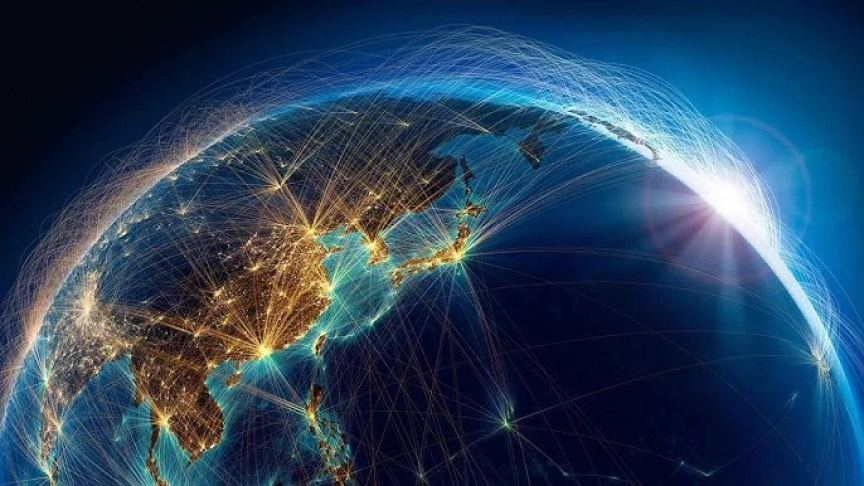
A digitally rendered view of global data lines lighting up Earth: A major outage at Amazon Web Services (AWS) triggered widespread disruption across the internet on October 20, 2025. (Photo/Lawyer Monthly)
A major outage at Amazon Web Services (AWS) on Monday triggered widespread disruption across the internet, affecting everything from social media platforms and gaming apps to banking services and government portals.
The incident exposed the fragility of global digital infrastructure, and gave Elon Musk an opening to promote his own platform.
The outage originated in AWS’s US-East-1 region in Northern Virginia, a hub that quietly powers thousands of systems across Europe and Asia. The failure, traced to a malfunction in AWS’s EC2 network load balancer subsystem, caused elevated error rates and downtime across services like Snapchat, Fortnite, Signal, Duolingo, Lloyds Bank, and even Amazon’s own platforms including Alexa and Prime Video.
As engineers scrambled to restore services, Elon Musk took to X with a two-word jab: “X works.” The post went viral, highlighting that his platform remained unaffected by the AWS crash. Musk followed up with a dig at competitors, saying he no longer trusted services that rely on cloud providers vulnerable to such large-scale failures.

He also used the moment to promote X Chat, describing it as a secure, independent alternative with encrypted messaging and no “strange AWS dependencies.” Musk’s remarks were later fact-checked by users on X after he shared a digitally altered news screenshot claiming AWS had AI pushing 75% of its production code, a claim not supported by the original article.
Beyond the trolling, the outage raised serious questions about data sovereignty, regulatory oversight, and the concentration of digital infrastructure in the hands of a few private providers. Legal experts warned that UK and EU institutions relying on U.S.-based data centers may face scrutiny under GDPR and post-Schrems II frameworks.
While AWS apologized and restored services later that day, the incident served as a wake-up call for governments, businesses, and consumers alike. It underscored how a single point of failure in the cloud can ripple across continents, disrupting essential services and sparking debate about the future of internet resilience.